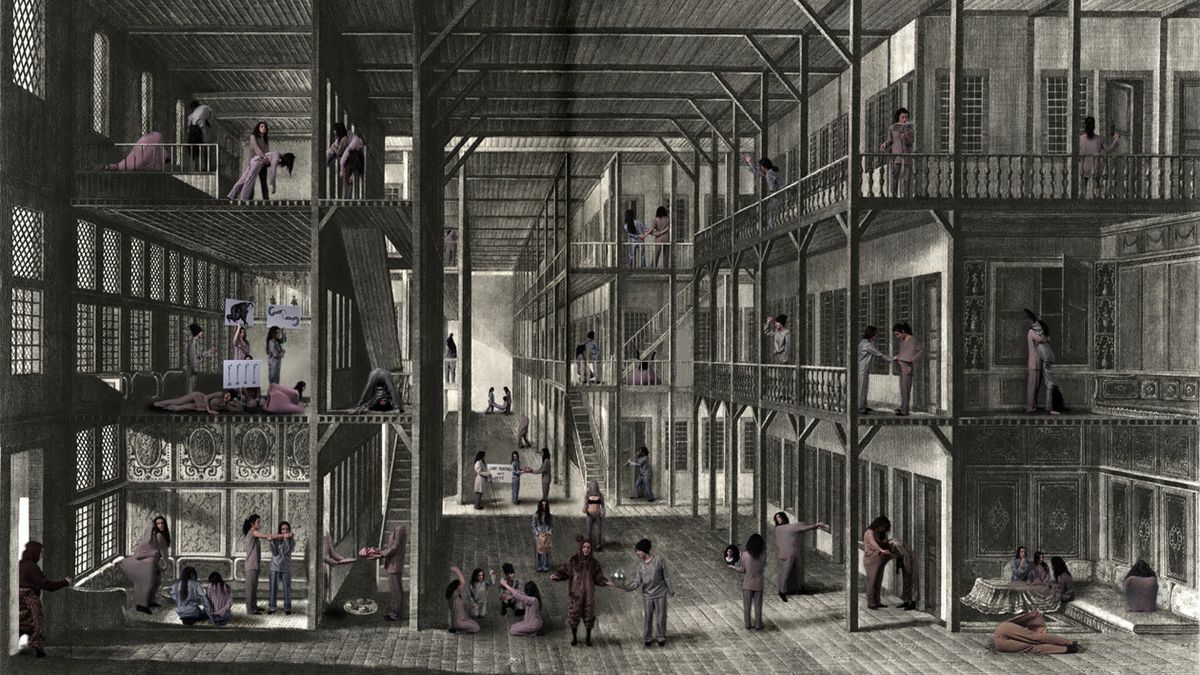A work by the Turkish artist İnci Eviner, exploring depictions of the harem through the ages, was pulled at the last minute from an exhibition at the Arab Museum of Modern Art (Mathaf) in Doha, Qatar, by the emirate's ministry of culture.
The work's title, Harem (2009), would historically be used to describe the part of a home set aside for women within a Muslim household, but has also come to refer to a group of women associated with one man—often within a polygamous relationship. It was due to go on show in Seeing Is Believing: The Art and Influence of Gérôme, which opened to the public on 3 November (until February 2025).
Organised with Qatar's Lusail Museum, the show includes over 400 objects and “examines the wider impact of the Orientalist art movement through photography and in conversation with Modern and contemporary artworks from West Asia, North Africa and Central Asia,” according to the museum’s website. The sprawling show includes loans from the Museum of Modern Art in New York, among others.
Eviner says she was called by the director of Mathaf Museum, Zeina Arida, and was informed that, by order of the ministry of culture, and "without further explanation and apology", her work would no longer be included in the exhibition. "I was shocked and upset by this decision, as Harem has been exhibited widely around the world without ever encountering such a response,” she says.
The artist adds: "I feel the case of my work being removed from the exhibition, leads to the question of how women’s rights, as well as free speech and free expression of art, change according to local values and [are] universal human rights. Mathaf Museum invites curators and artists as well as other art professionals from all over the world to legitimise how they use contemporary art...We have to question how contemporary art exhibitions might be useful tools to prove part of a democratic society in the art world."
The work was shown at the Center Pompidou in Paris and TBA21 (Thyssen-Bornemisza Art Contemporary) in Madrid, both institutions have an edition of Harem in their collections.
For Eviner, the work is rooted in historical ideas of gender, colonialism and the complicated view of the harem throughout history. “My interest in the Harem urges me to articulate these women beyond being objects of knowledge by giving them a voice…I think that with some intervention, these women [of the harem] who have been imprisoned by the scientific talent of the artist, can reveal relationships of interest that are beneath [the couple of] reality and fantasy,” Eviner says.
Mathaf was founded in 2010 and is part of Qatar Museums, led by H.E. Sheikha Al Mayassa bint Hamad bin Khalifa Al Thani. Located in a renovated former school building in Education City, which is a hub and located in Doha. The museum's collection, which features over 9,000 works, is also-co-owned by Qatar Museums and Qatar Foundation, according to their website.
The Art Newspaper reached out to officials at Mathaf several times for comment but received no response. However, the museum confirmed to ARTnews that the work was removed, giving no further details.
Qatar has a track record of curtailing free speech and imprisoning cultural figures with dissenting views. In 2020 the emirate introduced a new law, which Amnesty International warns will further diminish the freedom of expression of its people.


